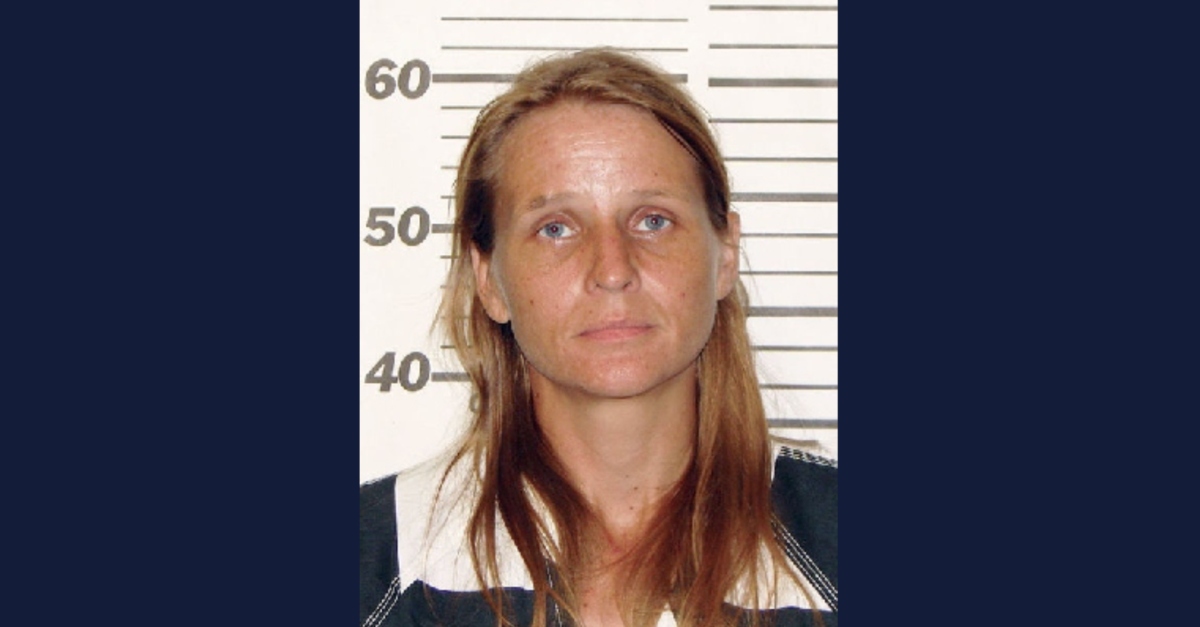
Rebecca Ruud
Rebecca Ruud, the Missouri woman acquitted of murdering her 16-year-old daughter Savannah Leckie, was sentenced on Thursday to time served for a count of abandonment of a corpse. She received a four-year prison sentence but got credit for time-served at almost 1,800 days, according to KY3. That means she is free.
Prosecutors said Ruud confessed while in jail to drugging her daughter’s drink with hydrocodone. Then, believing the 16-year-old to be dead, she took her body to a burn pile, but Leckie woke up screaming, authorities said. Ruud was accused of beating her to death. Savannah’s body was burned, reduced to just a bag of bones, prosecutor Anthony Brown said in an Ozark County courtroom. Brown argued that the defendant killed her daughter after subjecting her to prolific physical abuse, like making her go through a hog pen, hosing her down outside, and jumping her jump in a pond. Mother and child had recently moved back in together after Leckie grew up as an adopted child.
“This is indicative of a total disregard for humanity, for empathy, and compassion,” Brown said of Ruud, calling her a “possessed, evil person with evil intent.”
OPENING STATEMENTS – Prosecutor says the defendant recorded her own visit to the public defender’s office. In that recording, she admits to burning Savannah’s body. In that “story” she said Savannah died from a drug overdose and she burned her body, but that’s not true per pros.
— Cathy Russon (@cathyrusson) June 27, 2022
Ruud reported Leckie missing on July 20, 2017. Investigators found the 16-year-old’s burnt remains on her mother’s farm the following Aug. 4.
Defense lawyer Yvette Renee Duvall argued that her client panicked upon finding Leckie dead from suicide and only burned the body. In reference to the state’s use of jailhouse informants, she said the informants told “fantastical stories” about her client’s alleged admissions.
Judge Calvin Ray Holden, who presided over the bench trial, heard audio in which Ruud spoke to members of the public defender’s office and said that she burned Leckie’s body after the teenager died taking drugs.
“But that is all you’re going to hear because that is all she did,” Duvall said in opening statements.
She brought up Leckie’s history of mental health challenges, including being hospitalized twice in 2016 for suicidal ideation, self-harm, and cutting.
Brown said evidence of suicidal ideation and depression was just a “snapshot” of Savannah’s life and it was from 2016, the year before her death.
“So none of these records that you see were records that were generated while Savannah was under the care of the defendant,” he said.
Leckie only brought up suicide because she wanted to get help, the prosecutor said. She said that she did not want to act on it.
Holden found reasonable doubt for the homicide and abuse claims, acquitting Ruud for murder in the first-degree, abuse or neglect of a child, murder in the second degree, and tampering with evidence.
The only count the judge found #RebeccaRuud guilty of is count 5: abandonment of a corpse.
The defense said that Savannah killed herself and apparently the judge believed there wasn’t enough evidence to show otherwise. https://t.co/hOjUFGnk6k
— Cathy Russon (@cathyrusson) July 29, 2022
Authorities dropped a murder case against Ruud’s estranged husband Robert Peat Jr., who testified against her.
[Image via Ozark County]